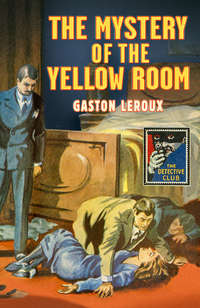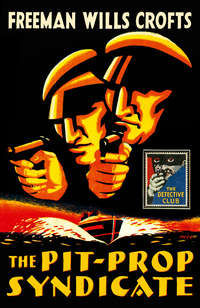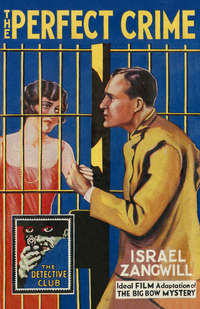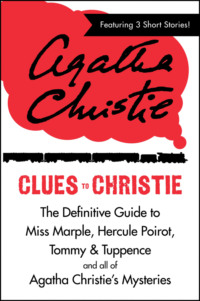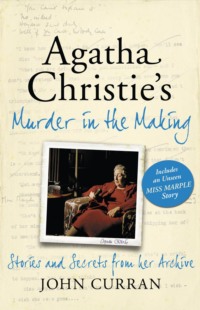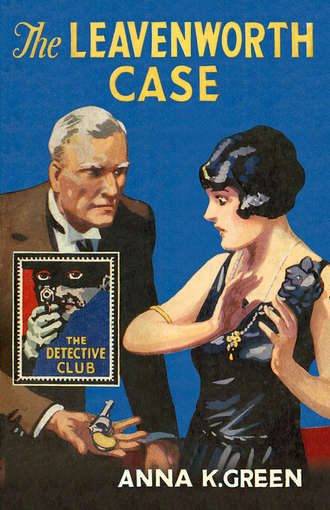
Полная версия
The Leavenworth Case
But the next witness proving to be none other than my acquaintance of the morning, Mr Harwell, I soon forgot both Thomas and the doubts his last movement had awakened, in the interest which the examination of so important a person as the secretary and right-hand man of Mr Leavenworth was likely to create.
Advancing with the calm and determined air of one who realised that life and death itself might hang upon his words, Mr Harwell took his stand before the jury with a degree of dignity not only highly prepossessing in itself, but to me, who had not been over and above pleased with him in our first interview, admirable and surprising. Lacking, as I have said, any distinctive quality of face or form agreeable or otherwise—being what you might call in appearance a negative sort of person, his pale, regular features, dark, well-smoothed hair and simple whiskers, all belonging to a recognised type and very commonplace—there was still visible, on this occasion at least, a certain self-possession in his carriage, which went far towards making up for the want of impressiveness in his countenance and expression. Not that even this was in any way remarkable. Indeed, there was nothing remarkable about the man, any more than there is about a thousand others you meet every day on Broadway, unless you except the look of concentration and solemnity which pervaded his whole person; a solemnity which at this time would not have been noticeable, perhaps, if it had not appeared to be the habitual expression of one who in his short life had seen more of sorrow than joy, less of pleasure than care and anxiety.
The coroner, to whom his appearance one way or the other seemed to be a matter of no moment, addressed him immediately and without reserve:
‘Your name?’
‘James Trueman Harwell.’
‘Your business?’
‘I have occupied the position of private secretary and amanuensis to Mr Leavenworth for the past eight months.’
‘You are the person who last saw Mr Leavenworth alive, are you not?’
The young man raised his head with a haughty gesture which well-nigh transfigured it.
‘Certainly not, as I am not the man who killed him.’
This answer, which seemed to introduce something akin to levity or badinage into an examination the seriousness of which we were all beginning to realise, produced an immediate revulsion of feeling toward the man who, in face of facts revealed and to be revealed, could so lightly make use of it. A hum of disapproval swept through the room, and in that one remark, James Harwell lost all that he had previously won by the self-possession of his bearing and the unflinching regard of his eye. He seemed himself to realise this, for he lifted his head still higher, though his general aspect remained unchanged.
‘I mean,’ the coroner exclaimed, evidently nettled that the young man had been able to draw such a conclusion from his words, ‘that you were the last one to see him previous to his assassination by some unknown individual?’
The secretary folded his arms, whether to hide a certain tremble which had seized him, or by that simple action to gain time for a moment’s further thought, I could not then determine. ‘Sir,’ he replied at length, ‘I cannot answer yes or no to that question. In all probability I was the last to see him in good health and spirits, but in a house as large as this I cannot be sure of even so simple a fact as that.’ Then, observing the unsatisfied look on the faces around, added slowly, ‘It is my business to see him late.’
‘Your business? Oh, as his secretary, I suppose?’
He gravely nodded.
‘Mr Harwell,’ the coroner went on, ‘the office of private secretary in this country is not a common one. Will you explain to us what your duties were in that capacity; in short, what use Mr Leavenworth had for such an assistant and how he employed you?’
‘Certainly. Mr Leavenworth was, as you perhaps know, a man of great wealth. Connected with various societies, clubs, institutions, etc., besides being known far and near as a giving man, he was accustomed every day of his life to receive numerous letters, begging and otherwise, which it was my business to open and answer, his private correspondence always bearing a mark upon it which distinguished it from the rest. But this was not all I was expected to do. Having in his early life been engaged in the tea-trade, he had made more than one voyage to China, and was consequently much interested in the question of international communication between that country and our own. Thinking that in his various visits there, he had learned much which, if known to the American people, would conduce to our better understanding of the nation, its peculiarities, and the best manner of dealing with it, he has been engaged for some time in writing a book on the subject, which same it has been my business for the last eight months to assist him in preparing, by writing at his dictation three hours out of the twenty-four, the last hour being commonly taken from the evening, say from half-past nine to half-past ten, Mr Leavenworth being a very methodical man and accustomed to regulate his own life and that of those about him with almost mathematical precision.’
‘You say you were accustomed to write at his dictation evenings? Did you do this as usual last evening?’
‘I did, sir.’
‘What can you tell us of his manner and appearance at the time? Were they in any way unusual?’
A frown crossed the secretary’s brow.
‘As he probably had no premonition of his doom, why should there have been any change in his manner?’
This giving the coroner an opportunity to revenge himself for his discomfiture of a moment before, he said somewhat severely:
‘It is the business of a witness to answer questions, not to put them.’
The secretary flushed and the account stood even.
‘Very well, then, sir; if Mr Leavenworth felt any forebodings of his end, he did not reveal them to me. On the contrary, he seemed to be more absorbed in his work than usual. One of the last words he said to me was, “In a month we will have this book in press, eh, Trueman?” I remember this particularly, as he was filling his wine-glass at the time. He always drank one glass of wine before retiring, it being my duty to bring the decanter of sherry from the closet the last thing before leaving him. I was standing with my hand on the knob of the hall-door, but advanced as he said this and replied, “I hope so, indeed, Mr Leavenworth.” “Then join me in drinking a glass of sherry,” said he, motioning me to procure another glass from the closet. I did so, and he poured me out the wine with his own hand. I am not especially fond of sherry, but the occasion was a pleasant one and I drained my glass. I remember being slightly ashamed of doing so, for Mr Leavenworth set his down half full. It was half full when we found him this morning.’
Do what he would, and being a reserved man he appeared anxious to control his emotion, the horror of his first shock seemed to overwhelm him here. Pulling his handkerchief from his pocket, he wiped his forehead. ‘Gentlemen, that is the last action of Mr Leavenworth I ever saw. As he set the glass down on the table, I said good-night to him and left the room.’
The coroner, with a characteristic imperviousness to all expressions of emotion, leaned back and surveyed the young man with a scrutinising glance. ‘And where did you go then?’ he asked.
‘To my own room.’
‘Did you meet anybody on the way?’
‘No, sir.’
‘Hear anything or see anything unusual?’
The secretary’s voice fell a trifle. ‘No, sir.’
‘Mr Harwell, think again. Are you ready to swear that you neither met anybody, heard anybody, nor saw anything which lingers yet in your memory as unusual?’
His face grew quite distressed. Twice he opened his lips to speak, and as often closed them without doing so. At last, with an effort, he replied:
‘I saw one thing, a little thing, too slight to mention, but it was unusual, and I could not help thinking of it when you spoke.’
‘What was it?’
‘Only a door half open.’
‘Whose door?’
‘Miss Eleanore Leavenworth’s.’ His voice was almost a whisper now.
‘Where were you when you observed this fact?’
‘I cannot say exactly. Probably at my own door, as I did not stop on the way. If this frightful occurrence had not taken place I should never have thought of it again.’
‘When you went into your room did you close your door?’
‘I did, sir.’
‘How soon did you retire?’
‘Immediately.’
‘Did you hear nothing before you fell asleep?’
Again that indefinable hesitation.
‘Barely nothing.’
‘Not a footstep in the hall?’
‘I might have heard a footstep.’
‘Did you?’
‘I cannot swear I did.’
‘Do you think you did?’
‘Yes, I think I did. To tell the whole: I remember hearing, just as I was falling into a doze, a rustle and a footstep in the hall; but it made no impression upon me, and I dropped asleep.’
‘Well?’
‘Some time later I woke, woke suddenly, as if something had startled me, but what, a noise or move, I cannot say. I remember rising up in my bed and looking around, but hearing nothing further, soon yielded to the drowsiness which possessed me and fell into a deep sleep. I did not wake again till morning.’
Here requested to relate how and when he became acquainted with the fact of the murder, he substantiated, in all particulars, the account of the matter already given by the butler; which subject being exhausted, the coroner went on to ask if he had noted the condition of the library table after the body had been removed.
‘Somewhat; yes, sir.’
‘What was on it?’
‘The usual properties, sir, books, paper, a pen with the ink dried on it, besides the decanter and the wineglass from which he drank the night before.’
‘Nothing more?’
‘I remember nothing more.’
‘In regard to that decanter and glass,’ broke in the juryman of the watch and chain, ‘did you not say that the latter was found in the same condition in which you saw it at the time you left Mr Leavenworth sitting in his library?’
‘Yes, sir, very much.’
‘Yet he was in the habit of drinking a full glass?’
‘Yes, sir.’
‘An interruption must then have ensued very close upon your departure, Mr Harwell.’
A cold bluish pallor suddenly broke out upon the young man’s face. He started, and for a moment looked as if struck by some horrible thought. ‘That does not follow, sir,’ he articulated with some difficulty. ‘Mr Leavenworth might—’ but suddenly stopped, as if too much distressed to proceed.
‘Go on, Mr Harwell, let us hear what you have to say.’
‘There is nothing,’ he returned faintly, as if battling with some strong emotion.
As he had not been answering a question, only volunteering an explanation, the coroner let it pass; but I saw more than one pair of eyes roll suspiciously from side to side, as if many there felt that some sort of clue had been offered them in this man’s emotion. The coroner, ignoring in his easy way both the emotion and the universal excitement it had produced, now proceeded to ask: ‘Do you know whether the key to the library was in its place when you left the room last night?’
‘No, sir; I did not notice.’
‘The presumption is, it was?’
‘I suppose so.’
‘At all events, the door was locked in the morning, and the key gone?’
‘Yes, sir.’
‘Then whoever committed this murder locked the door on passing out, and took away the key?’
‘It would seem so.’
The coroner turning, faced the jury with an earnest look. ‘Gentlemen,’ said he, ‘there seems to be a mystery in regard to this key which must be looked into.’
Immediately a universal murmur swept through the room, testifying to the acquiescence of all present. The little juryman hastily rising proposed that an instant search should be made for it; but the coroner, turning upon him with what I should denominate as a quelling look, decided that the inquest should proceed in the usual manner, till the verbal testimony was all in.
‘Then allow me to ask a question,’ again volunteered the irrepressible. ‘Mr Harwell, we are told that upon the breaking in of the library door this morning, Mr Leavenworth’s two nieces followed you into the room.’
‘One of them, sir, Miss Eleanore.’
‘Is Miss Eleanore the one who is said to be Mr Leavenworth’s sole heiress?’ the coroner here interposed.
‘No, sir, that is Miss Mary.’
‘That she gave orders,’ pursued the juryman, ‘for the removal of the body into the further room?’
‘Yes, sir.’
‘And that you obeyed her by helping to carry it in?’
‘Yes, sir.’
‘Now, in thus passing through the rooms, did you observe anything to lead you to form a suspicion of the murderer?’
The secretary shook his head. ‘I have no suspicion,’ he emphatically said.
Somehow, I did not believe him. Whether it was the tone of his voice, the clutch of his hand on his sleeve—and the hand will often reveal more than the countenance—I felt that this man was not to be relied upon in making this assertion.
‘I should like to ask Mr Harwell a question,’ said a juryman who had not yet spoken. ‘We have had a detailed account of what looks like the discovery of a murdered man. Now, murder is never committed without some motive. Does the secretary know whether Mr Leavenworth had any secret enemy?’
‘I do not.’
‘Everyone in the house seemed to be on good terms with him?’
‘Yes, sir,’ with a little quaver of dissent in the assertion, however.
‘Not a shadow lay between him and any other member of his household, so far as you know?’
‘I am not ready to say that,’ he returned, quite distressed. ‘A shadow is a very slight thing. There might have been a shadow—’
‘Between him and whom?’
A long hesitation. ‘One of his nieces, sir.’
‘Which one?’
Again that defiant lift of the head. ‘Miss Eleanore.’
‘How long has this shadow been observable?’
‘I cannot say.’
‘You do not know the cause?’
‘I do not.’
‘Nor the extent of the feeling?’
‘No, sir.’
‘You open Mr Leavenworth’s letters?’
‘I do.’
‘Has there been anything in his correspondence of late calculated to throw any light upon this deed?’
It actually seemed as if he never would answer. Was he simply pondering over his reply, or was the man turned to stone?
‘Mr Harwell, did you hear the juryman?’ inquired the coroner.
‘Yes, sir; I was thinking.’
‘Very well, now answer.’
‘Sir,’ he replied, turning and looking the juryman full in the face, and in that way revealing his unguarded left hand to my gaze, ‘I have opened Mr Leavenworth’s letters as usual for the last two weeks, and I can think of nothing in them bearing in the least upon this tragedy.’
The man lied; I knew it instantly. The clenched hand pausing irresolute, then making up its mind to go through with the lie firmly, was enough for me.
‘Mr Harwell, this is undoubtedly true according to your judgment,’ said the coroner; ‘but Mr Leavenworth’s correspondence will have to be searched for all that.’
‘Of course,’ he replied carelessly; ‘that is only right.’
This remark ended Mr Harwell’s examination for the time. As he sat down I made note of four things.
That Mr Harwell himself, for some reason not given, was conscious of a suspicion which he was anxious to suppress even from his own mind.
That a woman was in some way connected with it, a rustle as well as a footstep having been heard by him on the stairs.
That a letter had arrived at the house, which if found would be likely to throw some light upon this subject.
That Eleanore Leavenworth’s name came with difficulty from his lips; this evidently unimpressible man, manifesting more or less emotion whenever he was called upon to utter it.
CHAPTER IV
A CLUE
‘Something is rotten in the State of Denmark.’
—HAMLET
THE cook of the establishment being now called, that portly, ruddy-faced individual stepped forward with alacrity, displaying upon her good-humoured countenance such an expression of mingled eagerness and anxiety that more than one person present found it difficult to restrain a smile at her appearance. Observing this and taking it as a compliment, being a woman as well as a cook, she immediately dropped a curtsey, and opening her lips was about to speak, when the coroner, rising impatiently in his seat, took the word from her mouth by saying sternly:
‘Your name?’
‘Katherine Malone, sir.’
‘Well, Katherine, how long have you been in Mr Leavenworth’s service?’
‘Shure, it is a good twelvemonth now, sir, since I came, on Mrs Wilson’s ricommindation, to that very front door, and—’
‘Never mind the front door, but tell us why you left this Mrs Wilson?’
‘Shure, and it was she as left me, being as she went sailing to the ould country the same day when on her ricommindation I came to this very front door—’
‘Well, well; no matter about that. You have been in Mr Leavenworth’s family a year?’
‘Yes, sir.’
‘And liked it? Found him a good master?’
‘Och, sir, niver have I found a better, worse luck to the villain as killed him. He was that free and ginerous, sir, that many’s the time I have said to Hannah—’ She stopped, with a sudden comical gasp of terror, looking at her fellow servants like one who had incautiously made a slip.
The coroner, observing this, inquired hastily:
‘Hannah? Who is Hannah?’
The cook, drawing her roly-poly figure up into some sort of shape in her efforts to appear unconcerned, exclaimed boldly: ‘She? Oh, only the ladies’ maid, sir.’
‘But I don’t see anyone here answering to that description. You didn’t speak of anyone by the name of Hannah, as belonging to the house,’ said he, turning to Thomas.
‘No, sir,’ the latter replied, with a bow and a sidelong look at the red-cheeked girl at his side. ‘You asked me who were in the house at the time the murder was discovered, and I told you.’
‘Oh,’ cried the coroner, satirically; ‘used to police courts, I see.’ Then, turning back to the cook, who had all this while been rolling her eyes in a vague fright about the room, inquired, ‘And where is this Hannah?’
‘Shure, sir, she’s gone.’
‘How long since?’
The cook caught her breath hysterically. ‘Since last night.’
‘What time last night?’
‘Troth, sir, and I don’t know. I don’t know anything about it.’
‘Was she dismissed?’
‘Not as I knows on; her clothes is here.’
‘Oh, her clothes are here. At what hour did you miss her?’
‘I didn’t miss her. She was here last night, and she isn’t here this morning, and so I says she’s gone.’
‘Humph!’ cried the coroner, casting a slow glance down the room, while everyone present looked as if a door had suddenly opened in a closed wall.
‘Where did this girl sleep?’
The cook, who had been fumbling uneasily with her apron, looked up.
‘Shure, we all sleeps at the top of the house, sir.’
‘In one room?’
Slowly. ‘Yes, sir.’
‘Did she come up to the room last night?’
‘Yes, sir.’
‘At what hour?’
‘Shure, it was ten when we all came up. I heard the clock a-striking.’
‘Did you observe anything unusual in her appearance?’
‘She had a toothache, sir.’
‘Oh, a toothache; what, then? Tell me all she did.’
But at this the cook broke into tears and wails.
‘Shure, she didn’t do nothing, sir. It wasn’t her, sir, as did anything; don’t you believe it. Hannah is a good girl, and honest, sir, as ever you see. I am ready to swear on the Book as how she never put her hand to the lock of his door. What should she for? She only went down to Miss Eleanore for some toothache-drops, her face was paining her that awful; and oh, sir—’
‘There, there,’ interrupted the coroner, ‘I am not accusing Hannah of anything. I only asked you what she did after she reached your room. She went downstairs, you say. How long after you went up?’
‘Troth, sir, I couldn’t tell; but Molly says—’
‘Never mind what Molly says. You didn’t see her go down?’
‘No, sir.’
‘Nor see her come back?’
‘No, sir.’
‘Nor see her this morning?’
‘No, sir; how could I when she’s gone?’
‘But you did see, last night, that she seemed to be suffering with toothache?’
‘Yes, sir.’
‘Very well; now tell me how and when you first became acquainted with the fact of Mr Leavenworth’s death.’
But her replies to this question, while over-garrulous, contained but little information; and seeing this, the coroner was on the point of dismissing her, when the little juror, remembering an admission she had made, of having seen Miss Eleanore Leavenworth coming out of the library door a few minutes after Mr Leavenworth’s body had been carried into the next room, asked if her mistress had anything in her hand at the time.
‘I don’t know, sir. Faith!’ she suddenly exclaimed, ‘I believe she did have a piece of paper. I recollect, now, seeing her put it in her pocket.’
The next witness was Molly, the upstairs girl.
Molly O’Flanagan, as she called herself, was a rosy-cheeked, black-haired, pert girl of about eighteen, who under ordinary circumstances would have found herself able to answer, with a due degree of smartness, any question which might have been addressed to her. But fright will sometimes cower the stoutest heart, and Molly, standing before the coroner at this juncture, presented anything but a reckless appearance, her naturally rosy cheeks blanching at the first word addressed to her, and her head falling forward on her breast in a confusion too genuine to be dissembled and too transparent to be misunderstood.
As her testimony related mostly to Hannah, and what she knew of her, and her remarkable disappearance, I shall confine myself to a mere synopsis of it.
As far as she, Molly, knew, Hannah was what she had given herself out to be, an uneducated girl of Irish extraction, who had come from the country to act as lady’s-maid and seamstress to the two Misses Leavenworth. She had been in the family for some time; before Molly herself, in fact; and though by nature remarkably reticent, refusing to tell anything about herself or her past life, she had managed to become a great favourite with all in the house. But she was of a melancholy nature and fond of brooding, often getting up nights to sit and think in the dark: ‘as if she was a lady!’ exclaimed Molly.
This habit being a singular one for a girl in her station, an attempt was made to win from the witness further particulars in regard to it. But Molly, with a toss of her head, confined herself to the one statement. She used to get up nights and sit in the window, and that was all she knew about it.
Drawn away from this topic, during the consideration of which, a little of the sharpness of Molly’s disposition had asserted itself, she went on to state, in connection with the events of the past night, that Hannah had been ill for two days or more with a swelled face; that it grew so bad after they had gone upstairs, the night before, that she got out of bed, and dressing herself—Molly was closely questioned here, but insisted upon the fact that Hannah had fully dressed herself, even to arranging her collar and ribbon—lighted a candle, and made known her intention of going down to Miss Eleanore for aid.
‘Why Miss Eleanore?’ a juryman here asked.
‘Oh, she is the one who always gives out medicines and such like to the servants.’
Urged to proceed, she went on to state that she had already told all she knew about it. Hannah did not come back, nor was she to be found in the house at breakfast time.


